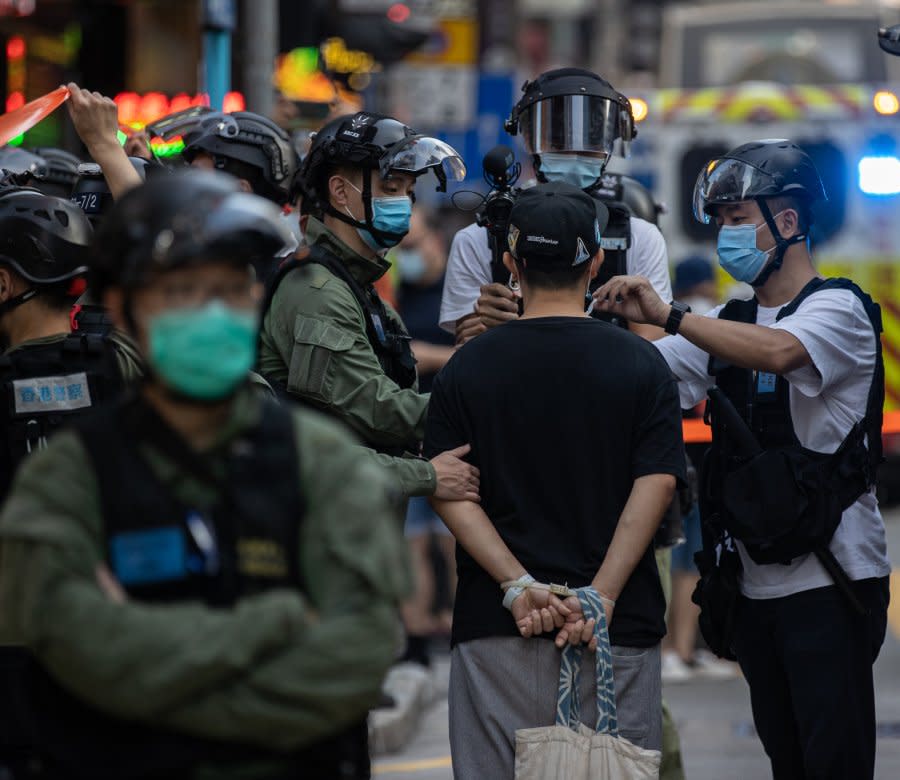YouTube blocks protest song 'Glory to Hong Kong' after government ban

May 15 (UPI) -- "Glory to Hong Kong," the popular protest song that became synonymous with the pro-democracy movement in Hong Kong in 2019, was pulled this week from YouTube after an appeals court win for the region's government.
Google, which owns YouTube, told UPI it would abide by the court order to ban the song that has been outlawed by the government since 2020 at the urging of Hong Kong officials.
"We are disappointed by the court's decision but are complying with its removal order by blocking access to the listed videos for viewers in Hong Kong," a YouTube representative told UPI in an emailed statement. "We'll continue to consider our options for an appeal, to promote access to information."
In all, 32 videos containing the song were identified as "prohibited publications" under the "Glory to Hong Kong" ban, according to YouTube.
It added that because the videos will no longer be available to users in Hong Kong, links to the videos via Google Search will no longer appear for those in the city.
In its place, a message said "This content is not available on this country's domain due to a court order," the Hong Kong Free Press reported. Spotify, though, has kept up some forms of the song in Hong Kong.
According to Google, because of the size of the Internet, the process to remove the song may take time.
A Hong Kong songwriter with the pseudonym "Thomas" released "Glory to Hong Kong" on YouTube on Aug. 31, 2019, during the massive pro-democracy protests that rocked the once self-governing region. It was quickly adopted by the demonstrators and others supporting democracy in Hong Kong.
Since then, the Hong Kong government, which has become more aligned with Beijing, has been trying to restrict its playing. On May 8, a Hong Kong appeals court overturned a lower court ruling, saying the government had the power to ban the song on national security grounds.
Hong Kong authorities had cited security reasons for its banning, saying that it incites "violence and disturbances."

